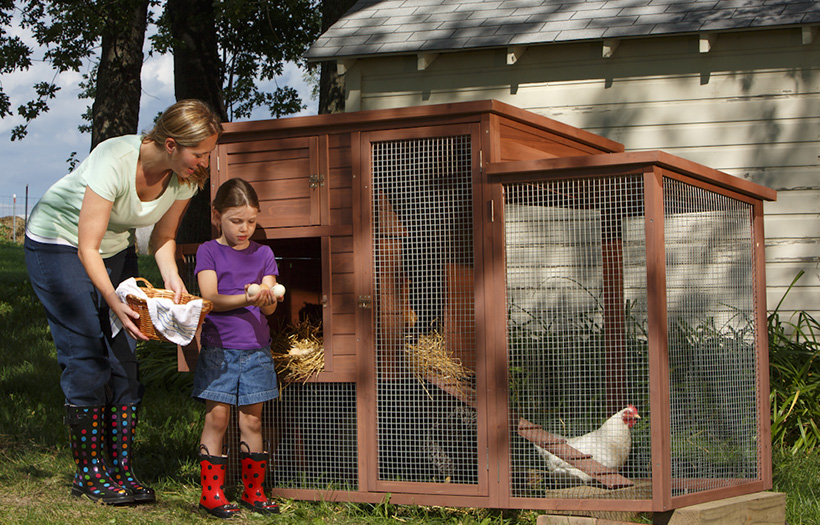Caring for Your Fresh Eggs

Nature has designed the eggshell as the perfect packaging material. It allows air to enter but is an effective bacteria barrier. Eggs can keep for weeks before spoiling, but the fresher they are, the better they taste. Gather eggs at least once a day during mild weather and more often during summer’s heat and winter’s bone-chilling cold. Store them in egg cartons in the refrigerator with the smaller pointy side down.
The best way to prevent dirty eggs is to keep chickens and the litter dry and to always have fresh, clean linings in nest boxes. Most homeowners can produce the very best nest material:
- Let a patch of summer lawn grow to seven or eight inches high
- Mow the patch on a dry day.
- Rake the clumps of cut grass into loose windrows so air can circulate, and let them dry a day or two.
- When completely dry, the grass will keep forever.
- Dry lawn grass can be formed into a cup shape in the nest, and it keeps eggs clean while cushioning them to prevent breakage.
Dirty eggs need to be gently washed and dried before refrigeration. If an egg is not dirty, it is not necessary to wash it off. Eggs are coated when they are laid with a nearly imperceptible substance called bloom that creates a barrier for bacteria. Eggs will keep longer if the bloom is not washed off. Wiping eggs with a dry cloth is sufficient unless they are very dirty.
You should collect your eggs at least once per day, especially in extremely hot and extremely cold weather. In heat the eggs will decompose at a faster rate then normal, while in the winter the eggs can actually freeze and the shells become brittle and can crack or break.
If you are questioning whether or not an egg is still good, try the water test:
- Submerge the egg completely in a bowl of cold water.
- If it floats it is bad. As an egg decomposes the moisture inside is replaced by oxygen and other types of gas. The more decomposed the egg, the more gas is inside it and the lighter it gets. This is why a spoiled egg will float.
- If the egg sinks completely or sits at just a slight angle, it should be fine to use.
